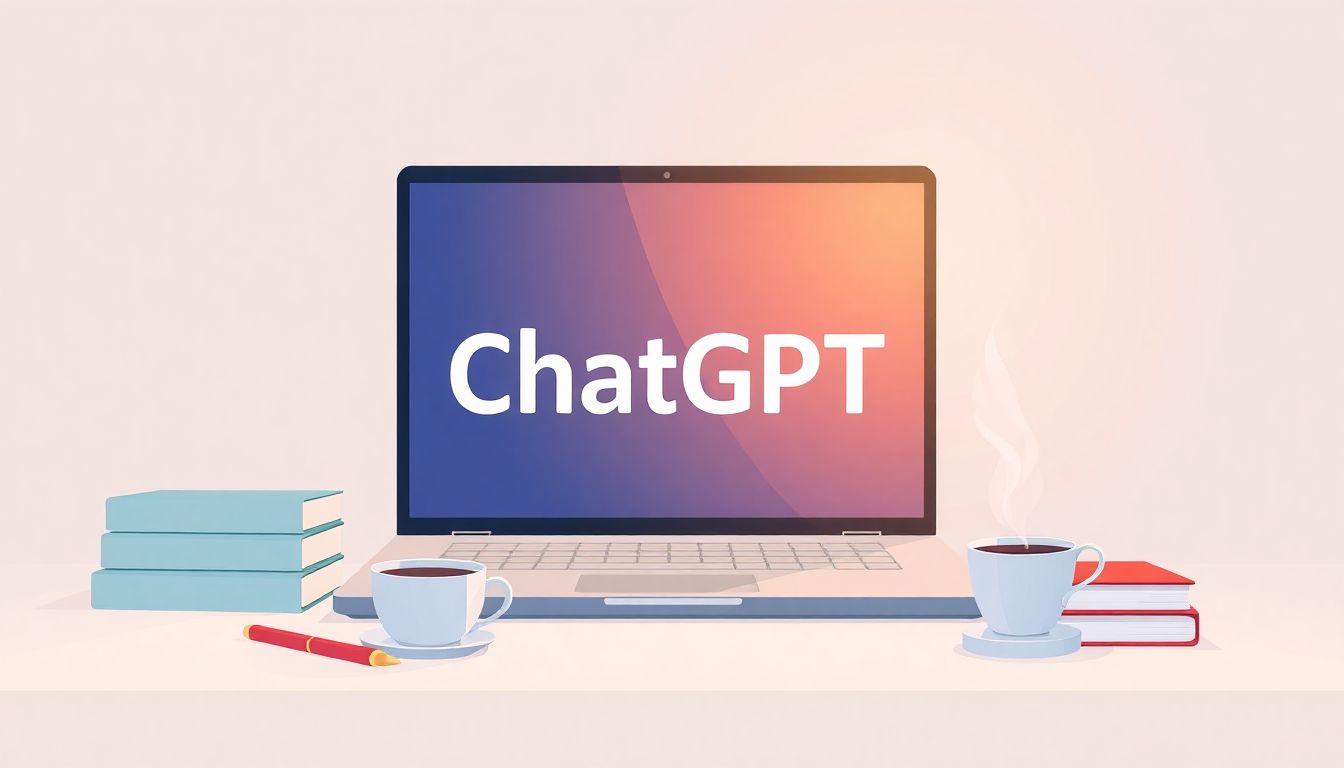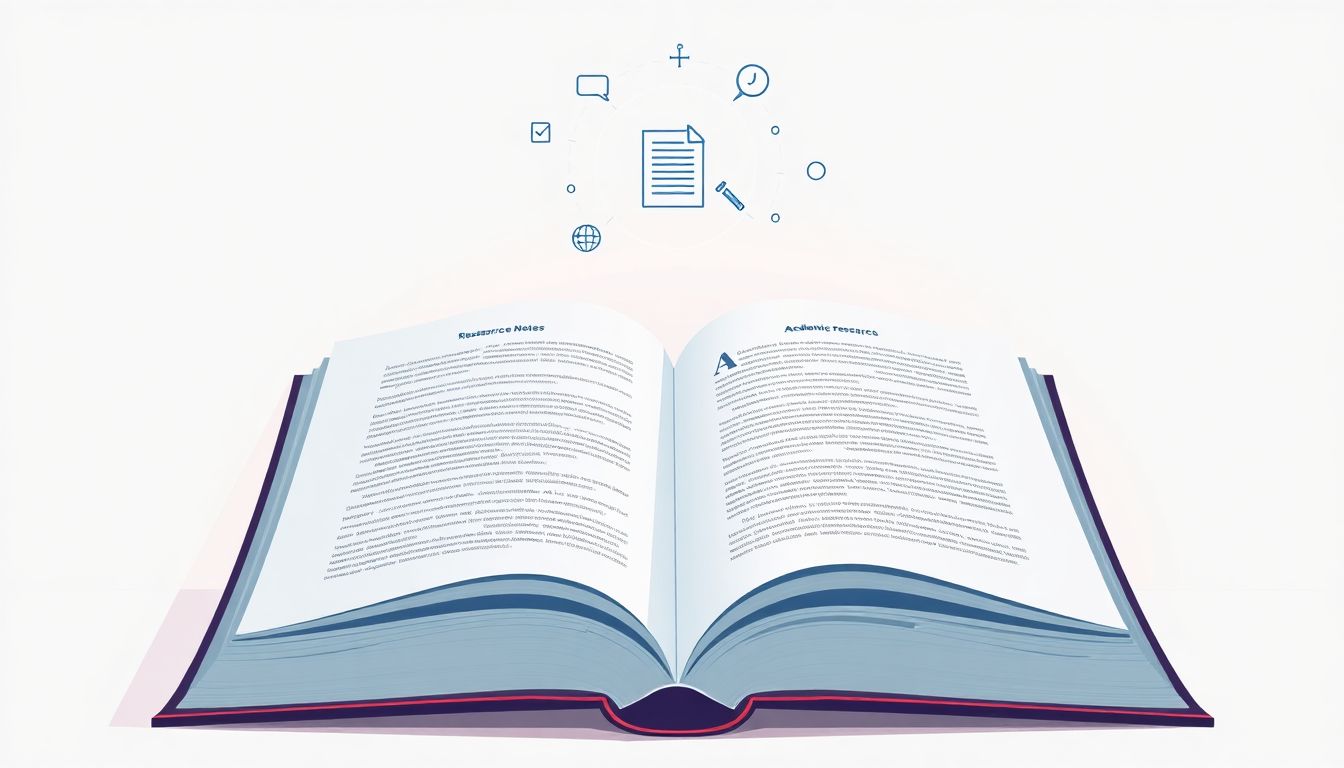Are you feeling overwhelmed by the demands of academic writing? You’re not alone! Many students and researchers struggle with finding the right resources, structuring arguments, or simply keeping up with the endless reading. It can be exhausting, right?
But what if I told you there’s a way to lighten that load? If you stick around, I’ll share how ChatGPT can be your secret weapon as a research assistant. You’ll discover tips and tricks that could make your writing process not just easier but even a tad more fun!
From generating ideas to refining your drafts, ChatGPT can assist you every step of the way. Let’s dive into how this powerful tool can transform your academic writing experience!
Key Takeaways
- ChatGPT can help streamline your academic writing by assisting with literature reviews, generating ideas, and providing feedback.
- It’s a cost-effective tool that offers quick access to information, saving you time and effort.
- You can use ChatGPT for various tasks like drafting proposals, summarizing articles, and generating bibliographies.
- To get the best results, use clear and specific prompts and refine your questions as needed.
- Always validate ChatGPT’s outputs by cross-referencing with credible sources to ensure accuracy.
- Be aware of its limitations, such as potential inaccuracies and a lack of domain-specific knowledge.

How ChatGPT Can Help You as a Research Assistant for Academic Writing
ChatGPT can be an incredible tool for academic writing, acting as an AI research assistant to streamline your writing processes and enhance your productivity.
With capabilities to assist in literature reviews, generating ideas, and even providing feedback, it can help you tackle various challenges faced in academic environments.
Consider ChatGPT your reliable digital companion in navigating the complexities of research and writing, ultimately making your academic journey smoother.
Benefits of Using ChatGPT for Academic Research
The benefits of using ChatGPT in academic research are numerous and significant.
Firstly, it serves as a cost-effective research tool, giving you access to vast amounts of information quickly.
Secondly, ChatGPT can help improve the literature review process by summarizing key points from multiple sources.
This saves you hours of manual reading and cross-referencing.
Additionally, it offers customized writing assistance, allowing you to tailor the support you need based on specific topics or writing styles.
In essence, using ChatGPT can vastly improve your efficiency when it comes to research and academic writing.
Types of Academic Writing Tasks ChatGPT Can Assist With
ChatGPT is versatile and can assist with a wide range of academic writing tasks.
From drafting research proposals to assisting with essay structure, ChatGPT can support you throughout the writing process.
It is especially helpful for summarizing academic articles, which can make your literature review more manageable.
For those wrestling with citation support, ChatGPT can also help generate bibliographies according to different citation styles.
In short, it’s like having a writing assistant who can help guide you through various academic writing challenges.
How to Use ChatGPT Effectively for Research
To maximize your use of ChatGPT for research, start with clear prompts.
Define what you want to focus on—this will help the AI understand your needs better.
Consider using iterative querying to refine your results; if the first answer isn’t quite right, dig deeper with follow-up questions.
Always be specific in your requests, such as wording like, “Summarize the key findings of this article,” to generate targeted outcomes.
Using ChatGPT for brainstorming sessions can uncover new angles you might not have considered.
Finally, don’t hesitate to ask for context or examples, as this can enrich the information you receive.
If you’re looking for specific prompts to get started, try these:
- “Summarize the main arguments in [insert article title].”
- “Generate a thesis statement for a paper on [insert topic].”
- “Create an outline for a research paper about [insert subject].”
- “List key paper references for [insert specific topic].”
For more ideas on prompts tailored for academic work, check out our article on prompts for college essays.
Also, if you’re interested in prompts tailored toward journaling themes, you can explore our piece on journaling prompts.

Sample Prompts for Academic Research with ChatGPT
Using specific prompts can significantly enhance your experience with ChatGPT when conducting academic research.
Well-crafted prompts guide the AI to provide more accurate and relevant information.
Here are some actionable prompts you can use right away:
- “List the main themes in the article titled ‘[insert article title]’ and explain their significance.”
- “Generate a comprehensive research question based on the topic of [insert topic].”
- “Outline a research paper on [insert topic], including sections for introduction, methodology, and conclusion.”
- “Summarize the findings of [insert specific study or article] in bullet points.”
- “Create a glossary of key terms used within the context of [insert subject].”
Feel free to mix and match these prompts to fit your specific research needs.
Tips for Validating ChatGPT’s Research Outputs
While ChatGPT is a powerful tool, validating its outputs is crucial before including them in your work.
Start by cross-referencing the information with credible sources.
Look for peer-reviewed articles or reputable journals to confirm the AI’s accuracy.
Assess the credibility of the sources ChatGPT references—are they scholarly and up-to-date?
Another good practice is to engage in peer review; share the AI-generated content with colleagues for their insights.
Finally, apply critical thinking: Does the content make sense? Does it fit with your existing knowledge?
Taking these steps can help ensure that the information you use is reliable and valid.
Limitations of Using ChatGPT in Academic Writing
It’s important to be aware of the limitations of ChatGPT when using it for academic purposes.
While it can be a fantastic resource, it’s not infallible.
The AI may provide inaccurate or outdated information, so fact-checking is essential.
Moreover, ChatGPT lacks domain-specific knowledge; it may struggle with highly specialized topics.
There’s also the potential for biases in its responses, which can skew interpretations.
Lastly, remember that using ChatGPT should not replace your analytical thinking.
It’s a tool to complement your skills, not a substitute for critical thought.

Integrating ChatGPT into Your Research Workflow
Integrating ChatGPT into your research workflow can streamline processes and increase efficiency.
Start by identifying specific tasks where ChatGPT can add value, like brainstorming topics or summarizing articles.
Use it during the initial stages of your research to gather background information and formulate your thesis.
As you collect data, leverage ChatGPT to help with the organization of content, such as creating outlines or drafting sections of your paper.
Incorporating the AI into your editing phase can also improve your writing quality by providing suggestions for clarity and coherence.
Consider collaboration; use ChatGPT to bounce ideas around, which might lead to new insights.
Remember to balance AI-generated insights with your critical thinking and expertise.
Here are some prompts you can use to integrate ChatGPT effectively:
- “Help me brainstorm research questions about [insert topic].”
- “Create a detailed outline for a paper focusing on [insert subject].”
- “Draft a first paragraph for my thesis on [insert topic].”
- “Summarize the key arguments from this article: [insert article link].”
- “Review this paragraph and suggest improvements for clarity.”
By adopting these practices, you can leverage ChatGPT to enhance your academic writing and research process.
FAQs
ChatGPT offers quick access to information, generates ideas, assists with writing, and provides feedback on drafts, making it a valuable tool for enhancing productivity and creativity in academic research.
To use ChatGPT effectively, provide clear, specific prompts, and request structured outputs. Iteratively refine your questions based on the responses to get more targeted information for your writing tasks.
ChatGPT may produce inaccuracies, lacks the ability to verify sources, and can generate off-topic or irrelevant content. Always verify information and use it as a supplement to traditional research methods.
To validate ChatGPT’s outputs, cross-check the information against reputable academic sources, consult scholarly articles, and seek peer reviews to ensure accuracy and reliability in your academic work.
